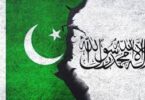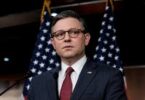The Chief of Army Staff (COAS) General Qamar Javed Bajwa has completed his first-ever official visit to the United States as the top most commander of the Pakistan military. During the visit, Army Chief called on senior American military and civilian leadership including US Defence Secretary Lloyd Austin at the Pentagon, National Security Adviser Jacob Sullivan at the White House, and Deputy Secretary of State Wendy Sherman at the US State Department. According to the official press release of the ISPR, the Army Chief held in-depth discussions with American leadership regarding matters of mutual interest, regional security situation, and bilateral cooperation in diverse fields. As said, General Bajwa expressed gratitude to the US government for its support for the flood relief in Pakistan and underscored the importance of foreign assistance for the rescue and rehabilitation of flood victims.
Pakistan and the United States have enjoyed a multifaceted and broad-based relationship, driven by mutual interests and cooperation in all walks of life ranging from education to trade and investment along with Intelligence collaboration, defense, and security domains. The Pak-US bilateral relations stretched over the past seven decades, which commenced immediately after the creation of Pakistan and gradually developed into a diverse and comprehensive partnership during the cold war. Historically, the resource deficient and Security Centric Pakistan remained heavily dependent on the American military and economic aid while American strategists successfully invented a sole and trustworthy ally in South Asia to carry forward their anti-communism agenda in the region. Pakistan played a pivotal role in checking communism during the cold war and the Soviet occupation of Afghanistan, while Islamabad’s critical role in the facilitation of US-China rapprochement is the most important feature of Pak-US friendship. Later, Pakistan had been an important Non-NATO ally of the United States in the War on Terror (WoT) in the early 21st century.
Historically, Pakistan-US ties had gone through several ups and downs at periodic intervals, however military to military contacts and strategic cooperation remained in place between the two nations throughout history. On several occasions, Military establishments have melted ice and created momentum to reset ties between the two countries. Apparently, the Pak-US partnership was the need of both nations and the two countries benefited each other through political and diplomatic engagement, military cooperation, intelligence sharing, and the provision of strategic assistance in the hour of need.
Pak-US relations had witnessed a historic low under the Biden administration during the past one and a half years. Currently, the US-Russia rivalry and Sino-America tussle are at their peak and the entire world is passing through a defining movement. The bloc politics becomes the order of the day while major powers are using all tactics to coax weaker nations to join their club. Pakistan categorically informed its all-weather friend China and the cold war’s ally America to play a neutral role in the emerging global environment. After a long annoyance and persuasion, the recent Washington-Islamabad rapprochement suggests that both nations are preparing to promote their relations in converging areas of mutual interests and facilitate each other’s interests as possible. The Army Chief’s recent visit to the US has set a course for a healthy and equally beneficial bilateral engagement between the two countries, hence both nations should work to maximize their shared objectives in the future.






